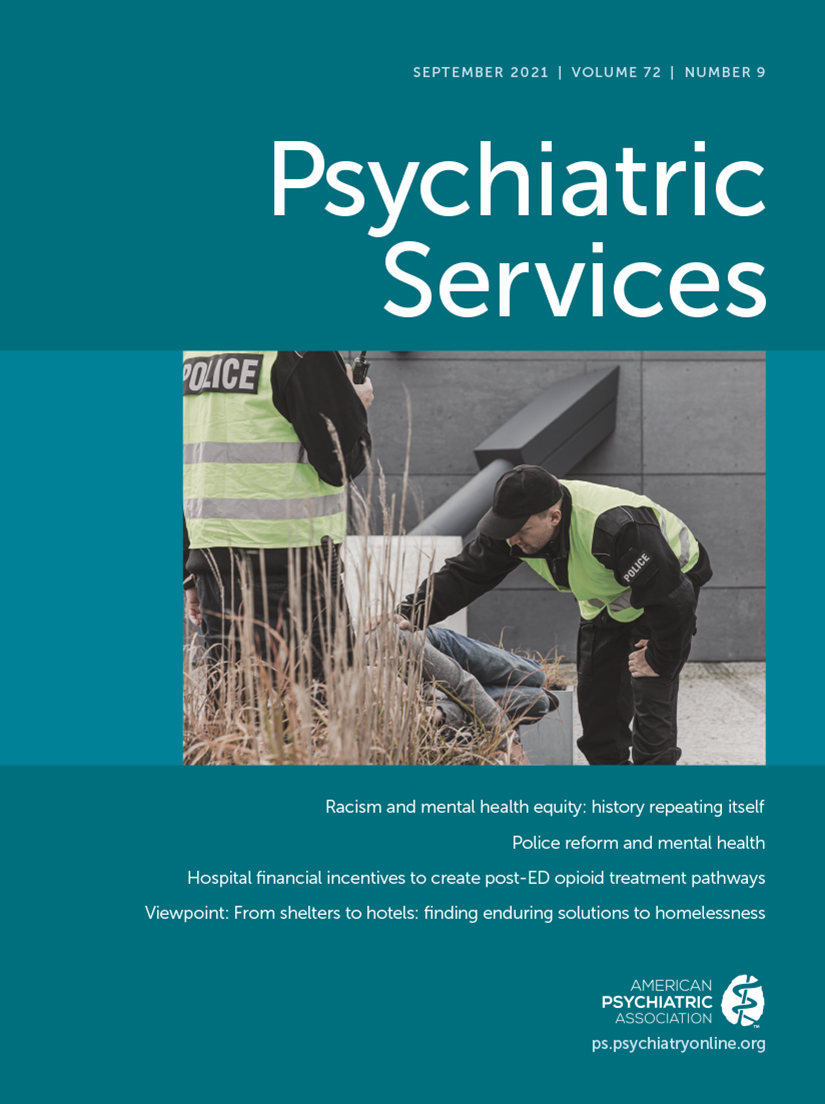Abstract
Objective:
The study objective was to examine the association between mental health staffing at health centers funded by the Health Resources and Services Administration (HRSA) and patients’ receipt of mental health treatment.
Methods:
Data were from the 2014 HRSA-funded Health Center Patient Survey and the 2013 Uniform Data System. Colocation of any mental health staff, including psychiatrists, psychologists, and other licensed staff, was examined. The outcomes of interest were whether a patient received any mental treatment and received any such treatment on site (at the health center). Analyses were conducted with multilevel generalized structural equation logistic regression models for 4,575 patients ages 18–64.
Results:
Patients attending health centers with at least one mental health full-time equivalent (FTE) per 2,000 patients had a higher predicted probability of receiving mental health treatment (32%) compared with those attending centers with fewer than one such FTE (24%) or no such staffing (22%). Among patients who received this treatment, those at health centers with no staffing had a significantly lower predicted probability of receiving such treatment on site (28%), compared with patients at health centers with fewer than one such FTE (49%) and with at least one such FTE (65%). The predicted probability of receiving such treatment on site was significantly higher if there was a colocated psychiatrist versus no psychiatrist (58% versus 40%).
Conclusions:
Colocating mental health staff at health centers increases the probability of patients’ access to such treatment on site as well as from off-site providers.



